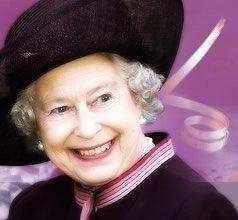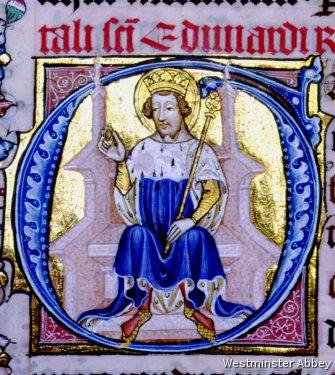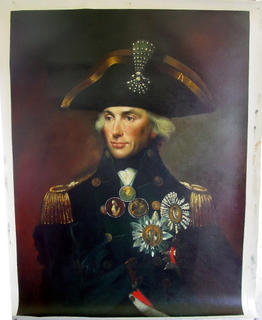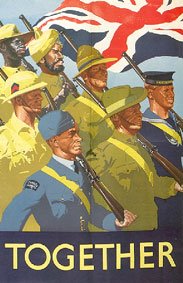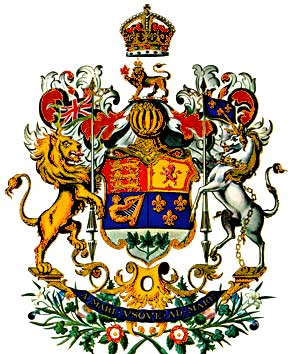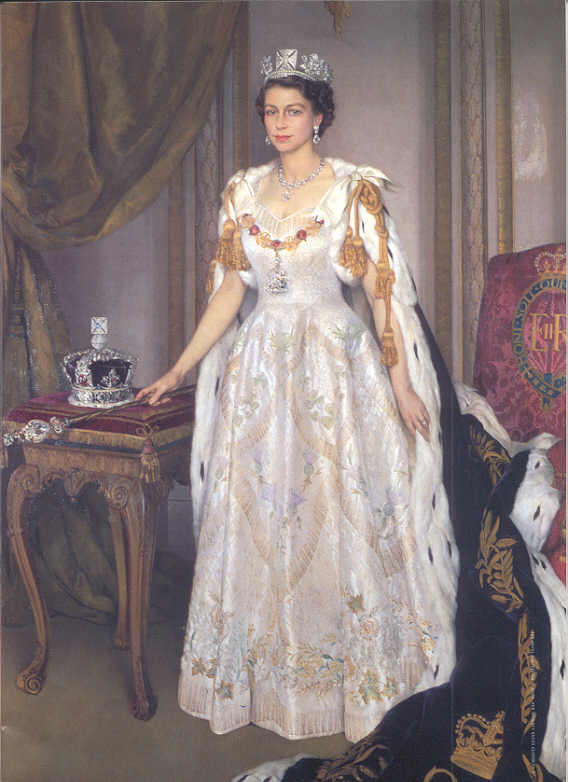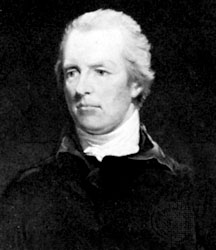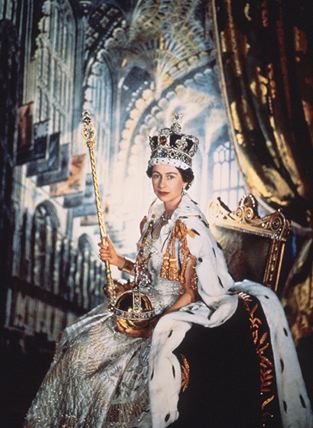[+] HONOURING OUR PATRON, SIR WINSTON CHURCHILL, VICTOR OF THE ENGLISH-SPEAKING PEOPLES
[+] HONOURING OUR QUEEN, ELIZABETH THE SECOND, ON THE 80TH YEAR OF HER BIRTH (1926 - 2006)
[+] HONOURING OUR KING, SAINT EDWARD THE CONFESSOR, ON THE 1000TH YEAR OF HIS BIRTH (1005 - 2005)
[+] HONOURING OUR HERO, LORD NELSON, ON THE BICENTENNIAL OF THE BATTLE OF TRAFALGAR (1805 - 2005)
[+] HONOURING OUR SONS, THE QUEEN'S COMMONWEALTH SOLDIERS KILLED IN THE 'WAR ON TERROR'
[+] HONOURING OUR VETS ON THE 150TH ANNIVERSARY OF THE VICTORIA CROSS (1856 - 2006)
 WHEREAS the longstanding tradition of representative monarchy as constitutionally practiced by the independent peoples of the United Kingdom of Great Britain and Northern Ireland, Canada, Australia, New Zealand and the other Realms of the Crown Commonwealth is continuously threatened by the unrelenting regressive forces around them, that left unchallenged will cause the venerable institution of monarchy, the most splendid form of constitutional government to have evolved on this Earth, to degenerate into a pathetic shadow of its former glory and inevitably or suddenly wither away;
WHEREAS the longstanding tradition of representative monarchy as constitutionally practiced by the independent peoples of the United Kingdom of Great Britain and Northern Ireland, Canada, Australia, New Zealand and the other Realms of the Crown Commonwealth is continuously threatened by the unrelenting regressive forces around them, that left unchallenged will cause the venerable institution of monarchy, the most splendid form of constitutional government to have evolved on this Earth, to degenerate into a pathetic shadow of its former glory and inevitably or suddenly wither away; AND WHEREAS a defeat for monarchy and for the people in any one Realm, is a defeat for monarchy and for all our peoples in all our Realms, we do hereby mutually proclaim therefore that any further acts of disloyalty carried out against our peoples as represented by their Sovereign, or any further encroachment by the political elite on their residual powers of State, or any further attempts to undermine the legitimacy, independence and dignity of their office, shall no longer be tolerated with gradualist abandonment, but fought vigilantly and honourably with dutiful obligation, bound by our undying affection, loyal devotion and true allegiance to Her Majesty, Queen Elizabeth II, Her Heirs and Successors.
GOD SAVE THE QUEEN.
Right. I'm tired of this here old blog. It's slow, it's clunky, it's partially inoperable. It's difficult to get in and make repairs. The html is all in longhand because I'm not a website design wizzard. I'm sick of the red lines and the sidebar buttons that won't open. Too much colour. Too little simplicity. Not enough elegance. Must take advantage of the accelerated design features of Beta. Besides, it's been almost two years now. I think it's high time we decommission T.M. and bring in version 2.0. What d'ya say? Should we throw the baby out with the bath water?
 Today is the 75th anniversary of the Statute of Westminster (sometimes referred to as the Treaty of Westminster outside the UK, though it was not in the form of a treaty), which came into effect on December 11, 1931.
Today is the 75th anniversary of the Statute of Westminster (sometimes referred to as the Treaty of Westminster outside the UK, though it was not in the form of a treaty), which came into effect on December 11, 1931.The Statute is of historical importance because it effectively marked the independence of the Dominion of Canada, the Commonwealth of Australia, the Dominion of New Zealand, the Union of South Africa, the Irish Free State and Newfoundland. Its current relevance is that it sets the basis for the continuing constitutional relationship between the Commonwealth Realms and the structure of the British Crown:
And whereas it is meet and proper to set out by way of preamble to this Act that, inasmuch as the Crown is the symbol of the free association of the members of the British Commonwealth of Nations, and as they are united by a common allegiance to the Crown, it would be in accord with the established constitutional position of all the members of the Commonwealth in relation to one another that any alteration in the law touching the Succession to the Throne or the Royal Style and Titles shall hereafter require the assent as well of the Parliaments of all the Dominions as of the Parliament of the United Kingdom
Most interestingly, on April 17, 2003, when Tony O’Donohue took Her Majesty to court over certain provisions of the Act of Settlement, 1701, on the grounds that they discriminate against Roman Catholics, and are in violation of the equality provisions of the Canadian Charter of Rights and Freedoms, Justice Rouleau ruled the case not justiciable:
The impugned positions of the Act of Settlement are an integral part of the rules of succession that govern the selection of the monarch of Great Britain. By virtue of our constitutional structure whereby Canada is united under the Crown of Great Britain, the same rules of succession must apply for the selection of the King or Queen of Canada and the King or Queen of Great Britain. As stated by Prime Minister St. Laurent to the House of Commons during the debate on the bill altering the royal title:Clearly the Act of Settlement and the Statute of Westminster are still central pieces of British legislation that carry constitutional weight for the Crown Commonwealth and its citizen subjects. They determine the core of how the monarchy functions, a continuing symbol of our fraternal unity and allegiance. We are now independent nations - have been for 75 years - but 75 years later we are not independent from the British Crown. The sentiment is gone, but the reality persists. Either we rediscover some of that lost sentiment, or we will discover a new reality.
“Her Majesty is now Queen of Canada but she is the Queen of Canada because she is Queen of the United Kingdom. . . It is not a separate office .. it is the sovereign who is recognized as the sovereign of the United Kingdom who is our Sovereign. . .” Hansard. February 3, 1953, page 1566.
These rules of succession, and the requirement that they be the same as those of Great Britain, are necessary to the proper functioning of our constitutional monarchy and, therefore, the rules are not subject to Charter scrutiny.
In the present case the court is being asked to apply the Charter not to rule on the validity of acts or decisions of the Crown, one of the branches of our government, but rather to disrupt the core of how the monarchy functions, namely the rules by which succession is determined. To do this would make the constitutional principle of Union under the British Crown together with other Commonwealth countries unworkable, would defeat a manifest intention expressed in the preamble of our Constitution, and would have the courts overstep their role in our democratic structure.
CHAPTER 4 OF THE STATUTES OF THE UNITED KINGDOM 22 GEORGE V
An Act to give effect to certain resolutions passed by Imperial Conferences held in the years 1926 and 1930.
11th December, 1931
WHEREAS the delegates to His Majesty's Governments in the United Kingdom, the Dominion of Canada, the Commonwealth of Australia, the Dominion of New Zealand, the Union of South Africa, the Irish Free State and Newfoundland, at Imperial Conferences holden at Westminster in the years of our Lord nineteen hundred and twenty-six and nineteen hundred and thirty did concur in making the declarations and resolutions set forth in the Reports of the said Conferences:
And whereas it is meet and proper to set out by way of preamble to this Act that, inasmuch as the Crown is the symbol of the free association of the members of the British Commonwealth of Nations, and as they are united by a common allegiance to the Crown, it would be in accord with the established constitutional position of all the members of the Commonwealth in relation to one another that any alteration in the law touching the Succession to the Throne or the Royal Style and Titles shall hereafter require the assent as well of the Parliaments of all the Dominions as of the Parliament of the United Kingdom:
And whereas it is in accord with the established constitutional position that no law hereafter made by the Parliament of the United Kingdom shall extend to any of the said Dominions as part of the law of that Dominion otherwise than at the request and with the consent of that Dominion:
And whereas it is necessary for the ratifying, confirming and establishing of certain of the said declarations and resolutions of the said Conferences that a law be made and enacted in due form by authority of the Parliament of the United Kingdom:
And whereas the Dominion of Canada, the Commonwealth of Australia, the Dominion of New Zealand, the Union of South Africa, the Irish Free State and Newfoundland have severally requested and consented to the submission of a measure to the Parliament of the United Kingdom for making such provision with regard to the matters aforesaid as is hereafter in this Act contained:
NOW, THEREFORE, BE IT ENACTED by the King's Most Excellent Majesty, by and with the advice and consent of the Lords Spiritual and Temporal, and Commons, in this present Parliament assembled, and by the authority of the same, as follows:--
1. In this Act the expression "Dominion" means any of the following Dominions, that is to say, the Dominion of Canada, the Commonwealth of Australia, the Dominion of New Zealand, the Union of South Africa, the Irish Free State and Newfoundland.
2. (1) The Colonial Laws Validity Act, 1865, shall not apply to any law made after the commencement of this Act by the Parliament of a Dominion.
(2) No law and no provision of any law made after the commencement of this Act by the Parliament of a Dominion shall be void or inoperative on the ground that it is repugnant to the law of England, or to the provisions of any existing or future Act of Parliament of the United Kingdom, or to any order, rule, or regulation made under any such Act, and the powers of the Parliament of a Dominion shall include the power to repeal or amend any such Act, order, rule or regulation in so far as the same is part of the law of the Dominion.
3. It is hereby declared and enacted that the Parliament of a Dominion has full power to make laws having extra-territorial operation.
4. No Act of Parliament of the United Kingdom passed after the commencement of this Act shall extend or be deemed to extend, to a Dominion as part of the law of that Dominion, unless it is expressly declared in that Act that that Dominion has requested, and consented to, the enactment thereof.
5. Without prejudice to the generality of the foregoing provisions of this Act, section seven hundred and thirty-five and seven hundred and thirty-six of the Merchant Shipping Act, 1894, shall be construed as though reference therein to the Legislature of a British possession did not include reference to the Parliament of a Dominion.
6. Without prejudice to the generality of the foregoing provisions of this Act, section four of the Colonial Courts of Admiralty Act, 1890 (which requires certain laws to be reserved for the signification of His Majesty's pleasure or to contain a suspending clause), and so much of section seven of that Act as requires the approval of His Majesty in Council to any rules of Court for regulating the practice and procedure of a Colonial Court of Admiralty, shall cease to have effect in any Dominion as from the commencement of this Act.
7. (1) Nothing in this Act shall be deemed to apply to the repeal, amendment or alteration of the British North America Acts, 1867 to 1930, or any order, rule or regulation made thereunder.
(2) The provisions of section two of this Act shall extend to laws made by any of the Provinces of Canada and to the powers of the legislatures of such Provinces.
(3) The powers conferred by this Act upon the Parliament of Canada or upon the legislatures of the Provinces shall be restricted to the enactment of laws in relation to matters within the competence of the Parliament of Canada or of any of the legislatures of the Provinces respectively.
8. Nothing in this Act shall be deemed to confer any power to repeal or alter the Constitution or the Constitution Act of the Commonwealth of Australia or the Constitution Act of the Dominion of New Zealand otherwise than in accordance with the law existing before the commencement of this Act.
9. (1) Nothing in this Act shall be deemed to authorize the Parliament of the Commonwealth of Australia to make laws on any matter within the authority of the States of Australia, not being a matter within the authority of the Parliament or Government of the Commonwealth of Australia.
(2) Nothing in this Act shall be deemed to require the concurrence of the Parliament or Government of the Commonwealth of Australia, in any law made by the Parliament of the United Kingdom with respect to any matter within the authority of the States of Australia, not being a matter within the authority of the Parliament or Government of the Commonwealth of Australia, in any case where it would have been in accordance with the constitutional practice existing before the commencement of this Act that the Parliament of the United Kingdom should make that law without such concurrence.
(3) In the application of this Act to the Commonwealth of Australia the request and consent referred to in section four shall mean the request and consent of the Parliament and government of the Commonwealth.
10. (1) None of the following sections of this Act, that is to say, sections two, three, four, five, and six, shall extend to a Dominion to which this section applies as part of the law of that Dominion unless that section is adopted by the Parliament of the Dominion, and any Act of that Parliament adopting any section of this Act may provide that the adoption shall have effect either from the commencement of this Act or from such later date as is specified in the adopting Act.
(2) The Parliament of any such Dominion as aforesaid may at any time revoke the adoption of any section referred to in sub-section (1) of this section.
(3) The Dominions to which this section applies are the Commonwealth of Australia, the Dominion of New Zealand, and Newfoundland.
11. Notwithstanding anything in the Interpretation Act, 1889, the expression "Colony" shall not, in any Act of the Parliament of the United Kingdom passed after the commencement of this Act, include a Dominion or any Province or State forming part of a Dominion.
12. This Act may be cited as the Statute of Westminster, 1931.
This was a Christmas present in the making, knowing that Google now has the honour to be our most humble and obedient server, after teaming up with Blogger. T.M. has been converted over to Blogger Beta from Blogger, which is a significant improvement for those who have tried it. When I made the switch, I didn't realize at the time that all our scribes would have to make the change too, so my apologies for the inconvenience. All I ask is that when following your invite to Beta, please make sure to keep your "display name" as is (in all lower case letters). Thank you.

It was painted in 1951 and is being sold at Sotheby's by Kitty Winn, granddaughter of US General George Marshall, to whom Churchill gave the painting as a gift in 1953 as a symbol of Anglo-American solidarity and has remained in the family since, explaining the fact no one was aware of it apparently.
"With such an amazing provenance - it was given to one of the most historicIt was in Morocco in 1943 that Churchill first met General Marshall who he came to revere as "the last great American."
families - it's all the more remarkable that it was missed," said Ms Thomas.
Ms Thomas said: "Churchill took up painting very late. He saw it as a hobby, heTwo other paintings by Churchill were recently sold for more than £300,000 each at auction with this one going under the hammer at Sotheby's in London tomorrow.
didn't see himself as a professional painter. It was something that he really
loved doing.
"Most importantly, he found relief from all the pressures of
his work in his painting. It was quite a therapeutic act. He would paint while
mulling over speeches and decisions.
Announcement in Response to Canadian PM Harper's Statement
On November 15, Prime Minister Steven Harper spoke about his private meeting with China's President Hu Jintao. He said "I don't think Canadians want us to sell out important Canadian values -- our belief in democracy, freedom, human rights ... They don't want us to sell that out to the almighty dollar.'' Harper's stand on not selling out on human rights is progressive and courageous. We wish to express our support and admiration.
The Chinese government, attempts to utilize its economic strength to convince other countries that they should change their attitude. In fact, some countries have given up their condemnation of China's human rights situation in exchange for lucrative business contracts.
China, with its huge economic force and population, has been identified by more and more progressive politicians as a potential threat to world peace. China often works in solidarity with other totalitarian countries to oppose the democratic world. It is vital that all freedom-loving nations unite against China.
Ironically, it was Canada's Liberal Government in the 1990s who initially developed the policy of separating human rights from trade in order to help China resolve its diplomatic troubles due to the Tian'anmen Square Massacre. But now, the Chinese Government tries to claim that trade and human rights are linked in an attempt to influence the Canadian Government's foreign policy. In fact, China is trading with Canada more than ever before.
The Prime Minister holds a minority government. Therefore, it is truly a brave stand that it has taken. Harper must tolerate a great deal of pressure from Canadian industrial and commercial groups. We call upon all Canadians to support Harper's appeal for human rights to be linked with trade in China.
Federation for a Democratic China, Canada
 I've been scanning through the Iraq Study Group Report and found the following salute to the British on page 32 which I thought I'd share:
I've been scanning through the Iraq Study Group Report and found the following salute to the British on page 32 which I thought I'd share:"The United Kingdom has dedicated an extraordinary amount of resources to Iraq and has made great sacrifices. In addition to 7,200 troops, the United Kingdom has a substantial diplomatic presence, particularly in Basra and the Iraqi southeast. The United Kingdom has been an active and key player at every stage of Iraq's political development. U.K. officials told us that they remain committed to working for stability in Iraq, and will reduce their commitment of troops and resources in response to the situation on the ground."
Gentlemen, to the ancient prestige of Oxford and the Oxford Union, we add the Oxford Monarchists.
Hat tip: My thanks to their Prefect, Mathew Allen, for sending me this link.
Her Majesty received two new ("loyal") opposition leaders over the weekend, one in the Great White North, and one in the Great Down Under.
Canada's Liberal Party once again chooses a Quebecker (though very much the anti-establishment candidate) to lead them, one Stephane Dion who holds uncertain prospects against Stephen Harper in the months ahead. On the flip side of the planet, Australia's Labor picked Kevin Rudd over Kim Beazley to take on John Howard in the next election down there.
Add to this the fact that John Key just took over the opposition reigns in New Zealand, and that the untraditionalist David Cameron is just barely a year through his tenure as opposition leader, and you get to wondering about the future of the monarchy. Just who are these people? Just how loyal are they?
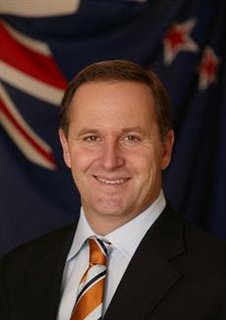 So John Key and Bill English, new leader and deputy of New Zealand's National Party, are to do battle against Helen Clark. Key, having assumed the mantle of the Party on November 27, has just announced his shadow cabinet.
So John Key and Bill English, new leader and deputy of New Zealand's National Party, are to do battle against Helen Clark. Key, having assumed the mantle of the Party on November 27, has just announced his shadow cabinet. [By the way, what the hell is this: "Pansy Wong gets ACC and Ethnic Affairs." Ethnic Affairs??]
The inevitable question being: who is this man? The article in Wikipedia is pretty thin gruel. We are told that he is more centrist than gentleman Don Brash, particular on social issues, which would possibly indicate a better showing in places like Auckland and Wellington. But to what degree would we see a hollowing out of conservatism to bridge the Kiwi urban-rural divide?
Is he, I don't know, a monarchist? A supporter of New Zealand's traditional flag? This doesn't sound good: The "Political Correctness Eradication role, established by Brash, has been "eradicated", said Key." The man from Helensville may have Helen shaking in her boots, but how about us? Should we be shaking too?
I'll be checking in from time to time to hear what our Kiwi readers have to say.


